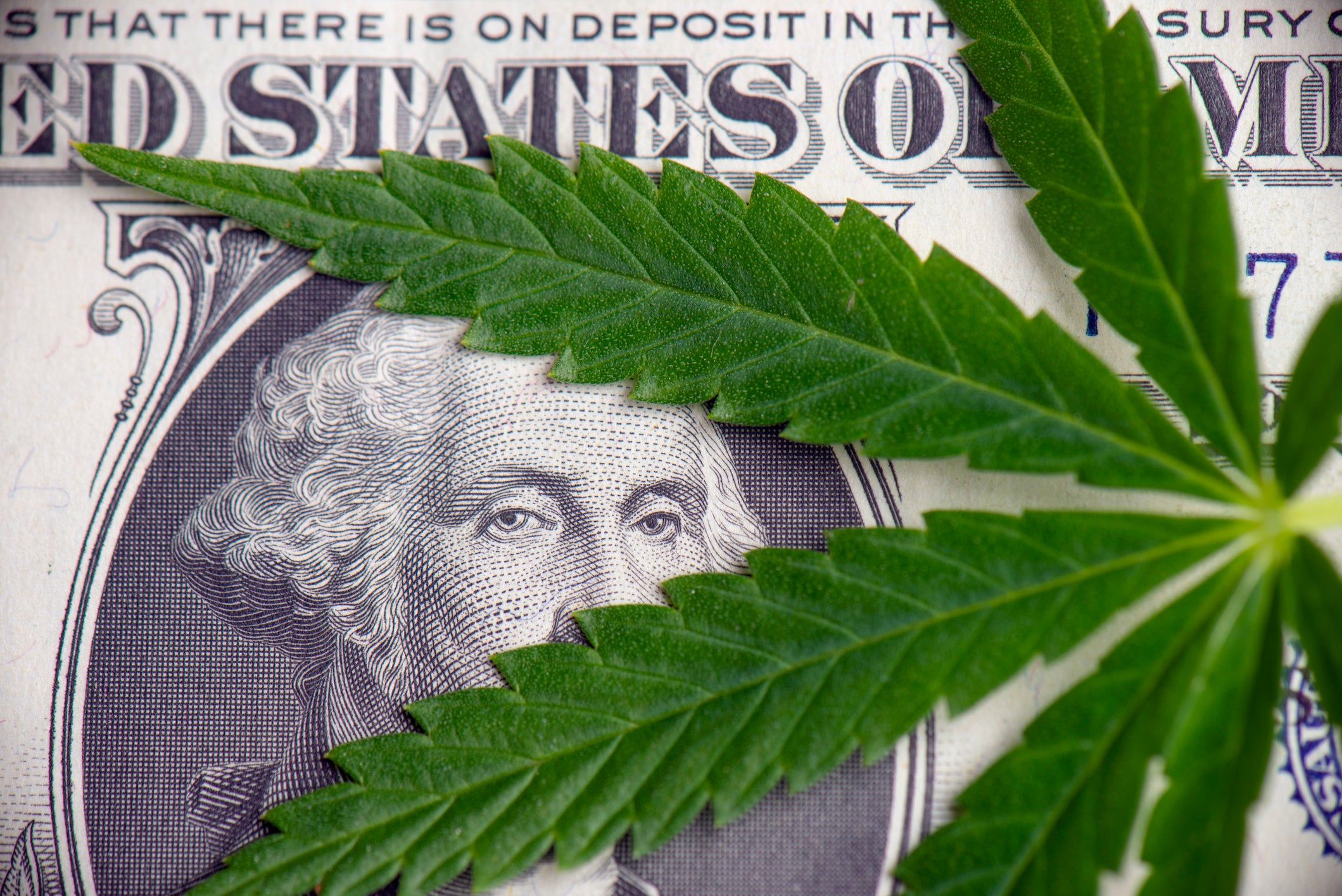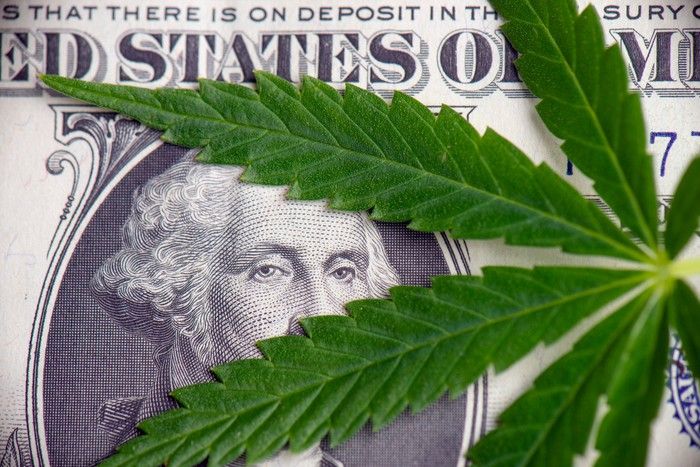When election day finally arrives, on Nov. 3, 2020, it will decide more than the fate of the economy. At that time, we’ll also get a good idea of whether the returning President Trump or newly minted President Biden will stand behind the
Secure and Fair Enforcement (SAFE) Banking Act—a proposed legal mandate which prohibits federal regulators from criminally or financially penalizing banks that provide services to legitimate marijuana or hemp-based businesses.
Each candidate holds differing views of this legislation, and neither has formally endorsed it. Joe Biden appears to favor a hands-off federal approach to cannabis firms, while Donald Trump’s camp also wants to skip all the puff-puff and just take a pass.
What is the SAFE Banking Act?
Members of Congress from states where marijuana has been legalized for medical or recreational purposes have long pushed to empower cannabis firms to enjoy widespread access to banking services. Despite being
passed by a landslide in the House of Representatives on Sept. 25, 2019 with bipartisan support from most Democrats and dozens of Republicans, the SAFE Banking Act is currently sitting in limbo with the Senate.
Hoping to spur progress, in May 2020, the Democrat-led House of Representatives followed up on its initial efforts by weaving the SAFE Banking Act’s provisions into the $3 trillion Health and Economic Recovery Omnibus Emergency Solutions (HEROES) Act that it introduced to provide added COVID-19 stimulus. However, federal relief talks between Democrats and the Republican-led Senate have since stalled, putting the SAFE Banking Act’s future—at least, as currently written—in jeopardy.
That’s a problem for cannabis-based businesses, as the SAFE Banking Act effectively provides basic protections that allow for these companies to do business with banks all around the US. Passing it would enable cannabis companies to enjoy access to standard financial tools like checking and savings accounts, lines of credit, and loans, which many other types of firms rely on every single day. Certain states are empowering select banks or credit unions to offer services, temporarily helping to meet some companies’ present financial needs. But at the national level, marijuana still remains an illegal Schedule 1 substance, potentially exposing many financial institutions to criminal or financial penalties if they choose to offer services to organizations that promote its sale and distribution.
Why the candidates’ positions matter
In addition to forcing many marijuana-based firms to primarily deal in cash (a major security risk), current legal circumstances also prohibit such organizations from obtaining loans or accessing lines of credit that can fuel company growth. Similarly, present federal laws leave banks in an uncomfortable spot, uncertain whether they’ll face prosecution and enforcement for supporting cannabis firms, which are often local and community-driven businesses. Marijuana companies have likewise been barred from receiving federal assistance such as PPP loans and other benefits provided in the CARES Act. This has served to deprive them of financial relief, despite ongoing uncertainty and continuing economic concerns.
Furthermore, the American Banking Association (ABA) website
notes that it “takes no position on the moral issues raised by legalizing marijuana.” At the same time, the organization suggests that “the time has come for Congress and the regulatory agencies to provide greater legal clarity to banks operating in states where marijuana has been legalized for medical or adult use.” In other words, banks looking to lend to legit cannabis clients are operating in a cluster****.
Presidential candidates Trump and Biden, whose presence looms large over the shape of the next administration, theoretically hold both the power and influence to sway future developments in the space. But neither has formally stepped out in favor of the SAFE Banking Act.
Where Trump and Biden sit on the issues
Democratic leaders maintain that the
purpose of the Act (as stated in the Act) is to “increase public safety by ensuring access to financial services to cannabis-related legitimate businesses… and reducing the amount of cash at such businesses.” But Republican leaders, including Senate Majority Leader Mitch McConnell, remain opposed to including this legislation within coronavirus relief bills. In fact, Vice President Mike Pence’s chief of staff recently
dismissed Democratic efforts to bring cannabis banking legislation to the table as part of a “
liberal wish list.” All of this has taken place, despite
Trump’s public stance to allow marijuana legalization on a state-by-state basis.
At the same time, a joint task force representing the efforts of Joe Biden and Vermont senator Bernie Sanders has largely
elected to sidestep the issue, suggesting that states should set their own cannabis laws. In states where use of marijuana is legalized, the Biden administration would essentially not direct the Justice Department to pursue cases against cannabis firms. By proxy, some measure of protection may be extended to service providers (i.e. banks) who do business with the companies.
However, Biden has not confirmed that he will pass the SAFE Banking Act. Rather, he’s suggested that he will elect to pursue the decriminalization of marijuana, not the general legalization of it, as part of his administration’s overall criminal justice priorities. Put simply, if Biden wins, Democratic policy is
poised to favor the legalization of medical marijuana, with terms surrounding recreational use left to individual states to determine.
Conversely, a whistleblower recently came forward earlier this summer suggesting that William Barr, Trump’s attorney general, inappropriately
launched multiple antitrust investigations into marijuana company deals spurred by his dislike of the cannabis industry. Coupled with the Senate’s lack of action, and current position of White House administrators and aides, this would suggest Donald Trump and his colleagues are, to date, opposed to passing the SAFE Banking Act.
Will the SAFE Banking Act go up in smoke?
After galvanizing momentum for the SAFE Banking Act, in 2019, it has temporarily stalled. Joe Biden and his vice presidential running mate, former prosecutor Sen. Kamala Harris (D-CA), have made it clear that they intend to prioritize drug policy reform—albeit to varying individual degrees, depending on offense type—and migrate from a stance of punishment to rehabilitation for drug-related offenders, overall. Meanwhile, while they haven’t attacked many of the changes proposed by the SAFE Banking Act, President Trump and his allies appear to be dismissive of its contents in general, and committed to throwing up roadblocks to its formal adoption into law.
Having already endured its fair share of ups and downs, the legal amendments that the SAFE Banking Act proposes have yet to be jointly ratified by both the House and Senate. Clarity likewise remains hard to come by for financial institutions and cannabis-based businesses alike. Predictably, marijuana reform advocates remain disgruntled at the current state of things, and continue to lobby for change.
With representatives from the House and Senate at a current impasse in talks surrounding coronavirus relief and reform, current odds of the SAFE Banking Act becoming law anytime soon, likewise, remain dubious. Many key political figures still remain ambivalent or opposed—at least as currently written—to its passage, and key Senate officials still hold the power to stall the legislation in its present form. Earlier this year, in fact, Senate Banking Committee Chairman Mike Crapo (R-Idaho) attempted to amend the Act to bar companies selling enough THC—the psychoactive component of marijuana that gets you high—from accessing financing.
To date, the SAFE Banking Act appears unlikely to pass in 2020. For President Donald Trump and his circle, the reforms it proposes appear to be a non-starter. However, while Biden’s camp has largely tiptoed around the issue, the SAFE Banking Act seems to have a lot of Democratic support.
Currently though, for cannabis-based businesses, it’s hard to say whether the future of marijuana-based financing will involve seeing more legal green in the form of legal tender, or just smoking it.
Don’t forget that you can do your part by visiting Complex’s Pull Up & Vote site—where you can double-check your registration, register to vote if you haven’t, and request a mail-in ballot.

